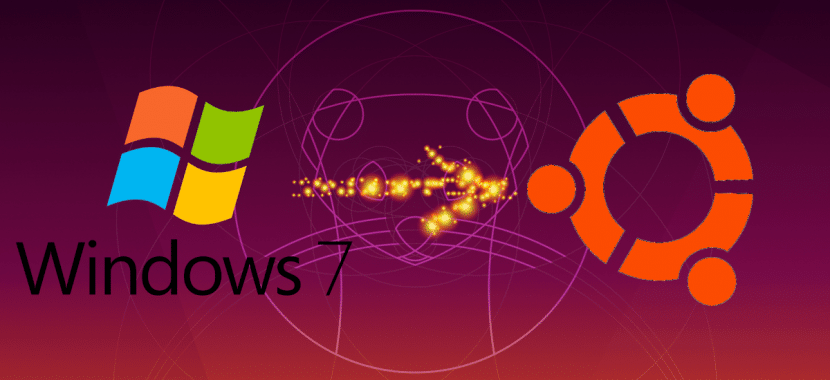
The end of support for Windows 7 was quite an event. Many users, especially those who are not proficient in computing, are concerned about what they will do from now on, and that is something that "the computer scientists of the family" have surely suffered or are suffering. Canonical knows this and has set out to fish in troubled rivers. This is something that they also want to do other companies, but the case of Canonical is more striking, first because it is an important company and second because they have published detailed information on how we should do it
A few hours ago, the company that Mark Shuttleworth runs posted an article on his blog that he has titled "How to upgrade from Windows 7 to Ubuntu - Installation". In it he explains that install an operating system It is not an easy task (well, for some). The problem is that most users buy a computer that already has the operating system installed by default and they do not know anything about LiveCD or making any changes to the BIOS, if necessary.
Canonical's Guide to Upgrading from Windows 7 to Ubuntu
Installing an operating system is not an easy task. For most people, this is something they will never have done. The vast majority of people buy computers with the operating system already installed, so they never have to manually run through the system setup. The process can be intimidating, but we will try to make it as simple as possible.
The first thing they explain to us are the terms or phrases that they are going to use, among which we have Live Session, partition or file system. They also tell us about the type of installations, such as the one that installs a single operating system, dual boot or virtualization. Having explained all this, they go on to detail the steps to follow to install Ubuntu on a computer that previously had Windows 7 installed, although the process can work in almost any scenario.
As we and virtually any specialized software outlet do, Canonical advises that before doing the actual installation, let's practice in a virtual machine. The company advises using VirtualBox, in part because it is the most powerful free software we can use on Windows operating systems.
In any case, the guide published by Canonical is quite a statement of intent for attract Windows users to Ubuntu. From here, we would like to do the same: being objective, we will say that, if we do not depend on a specific program that is available only for Windows, an operating system like Ubuntu will be the best option, so we invite you to join We. What are you waiting for?
It is a great opportunity for many users who are surely fed up with using Microsoft products.
I am an Ubuntu user, and I feel more comfortable using it than with Windows. It is a matter of taste, although I think that in the market in which Microsoft reigns, most of them will opt for Windows 10, because Microsoft did a great job monopolizing that market and it is very difficult to overshadow it.
I am a Debian user and I am very comfortable with this operating system, and I am fascinated by the idea that Cannonical is carrying out, even if there are few users who migrate to Ubuntu, it will be a great gain since this way the Linux community will grow a little more . And who knows, maybe later they will be encouraged to use Debian
In our school we have 5 computing classes with 31 Ubuntu devices (155 machines) + Ubuntu-based home folder server + Foreman server for deployement.
More than 100 M $ Windows computers.
90% of our service is required for Windows and 10% of our service is required for Lunux.
Windows the reality that conforms it, dead gossip criminal trust dealer deposited by its users and has ended for now its long criminal history